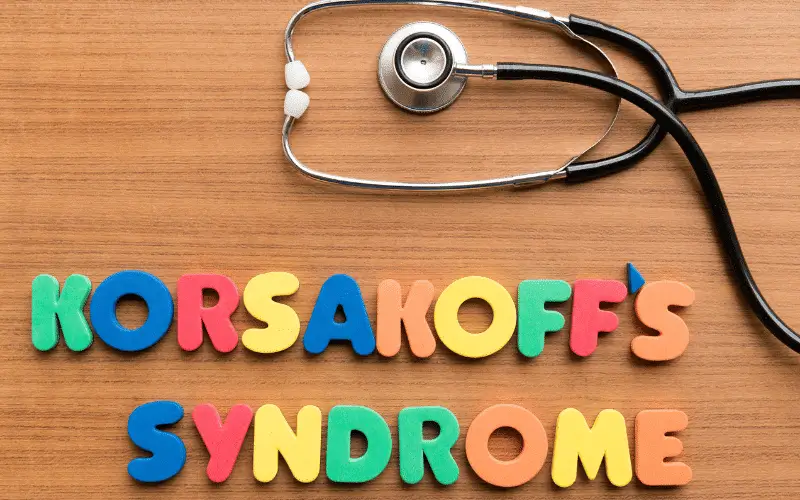Introduction: A Look into Korsakoff Syndrome

In the intricate world of neurology, there lies a puzzling condition known as Korsakoff Syndrome (KS). With a myriad of intriguing facets and perplexing signs, KS beckons us on a voyage of discovery. This guide delves into the realm of KS, unravelling its mysteries and unveiling its true nature.
Korsakoff Syndrome, named after the Russian psychiatrist Sergei Korsakoff who first characterized it, is not a standalone ailment. Rather, it is a sequel of Wernicke’s Encephalopathy, another complex neurological disorder. Through our exploration, we’ll learn how these two conditions intertwine, forming a disorienting neurologic tapestry.
Korsakoff Syndrome is often associated with alcohol abuse, with heavy drinkers being particularly vulnerable. It stands as a condition of immense complexity and wide-reaching impact. Often unbeknownst to those affected until its advancement, KS introduces a host of debilitating cognitive and physical effects, emphasizing the necessity for comprehensive knowledge and understanding of this syndrome.
As we traverse the landscape of Korsakoff Syndrome, we’ll uncover not only the struggles and hardships that accompany the condition but also the glimmers of hope. The potential for recovery, while not universal, is a crucial aspect of our exploration.
So, whether you’re a medical professional seeking to understand this complex disorder better, a caregiver looking to support a loved one, or an inquisitive mind eager to learn, this guide is for you. Through a comprehensive overview of the most important facts about Korsakoff Syndrome, we’ll decipher the enigma, shedding light on the unknown and empowering you with knowledge.
Fact 1. The Underlying Trigger: Thiamine Deficiency

Thiamine, also known as Vitamin B1, is crucial for the body’s everyday operations, notably in the metabolism of carbohydrates and the upkeep of neurological health. A severe deficit of this vitamin sets the stage for Korsakoff Syndrome to develop. The body is unable to store thiamine in large quantities, hence it relies heavily on consistent dietary intake. Insufficient thiamine disrupts the delicate equilibrium of chemicals in our brain, causing adverse neurological effects.
In the initial stages, thiamine deficiency may be hard to detect due to the subtlety of the symptoms. This element of stealth presents a significant challenge, as it enables the deficiency to progress undetected until more severe symptoms start to appear. There’s a broad array of symptoms, from unexplained fatigue and irritability to more serious indicators such as rapid heart rate and gastrointestinal issues.
Given that thiamine is largely found in food sources, a lack of it could be indicative of malnutrition or a diet that is deficient in vitamin-rich foods. In other instances, the cause could be an underlying medical condition that hampers the body’s ability to absorb this vitamin, such as alcoholism or a malabsorption syndrome. Prolonged thiamine deficiency then paves the way for more serious neurological conditions like KS. (1)